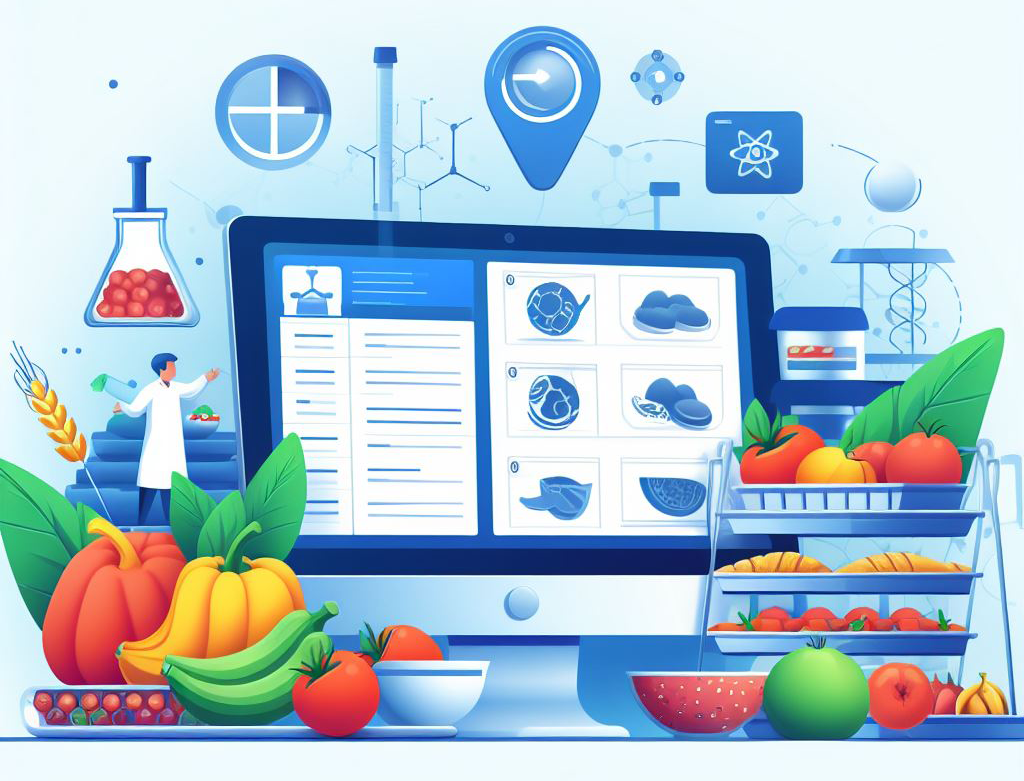How to choose a laboratory management system (LIMS) for food processing enterprises
Released:2023-11-02
With the rapid development of the food processing industry, the demand for laboratory management systems is also increasing. Laboratory management systems (LIMS) are an indispensable part of food processing companies as they can effectively improve the efficiency and accuracy of laboratories and reduce costs. However, how to choose the right LIMS system for your business?

1. Clarify needs
Before choosing a LIMS system, food processors need to be clear about their needs. These requirements may include: increasing the speed and accuracy of laboratory data processing, enabling effective management of laboratory equipment and samples, optimizing laboratory workflows, improving laboratory productivity, and more. By clarifying the requirements, companies can select the right LIMS system in a more targeted manner.
2. Functional requirements
The function of the LIMS system is an important basis for selecting the system. Food processing companies should consider the following functional requirements:
1. Laboratory data management: including data entry, data storage, data query, data analysis and other functions, which can realize rapid processing and accurate analysis of data.
2. Laboratory equipment management: including equipment procurement, equipment acceptance, equipment use, equipment maintenance, equipment scrapping and other whole-process management, which can realize effective monitoring and maintenance of equipment.
3. Laboratory sample management: including sample storage, sample storage, sample delivery, sample processing and other whole process management, which can realize the standardization and management of samples.
4. Laboratory workflow management: including the whole process management of experimental process design, experimental task allocation, experimental data review, etc., which can realize the standardization, efficiency and standardization of experimental work.
5. Laboratory personnel management: including personnel files, training records, assessment records, etc., to achieve a comprehensive grasp and management of personnel capabilities.
3. Performance requirements
In addition to the functional requirements, the performance of the LIMS system is also an important consideration in selecting the system. Food processors should consider the following performance requirements:
1. Stability: The system can operate stably and will not affect the normal operation of the laboratory due to faults or abnormal situations.
2. Scalability: The system can support future expansion and upgrades to meet the growing needs of enterprises.
3. Ease of use: The system has a friendly interface and easy operation, which is convenient for laboratory personnel.
4. Security: The system has a complete security mechanism to ensure the security and confidentiality of data.
Fourth, case analysis
For example, a food processing company chose a LIMS system to improve the management efficiency and data accuracy of the laboratory. In the selection process, the company first clarified its own needs, then compared and analyzed multiple LIMS systems, and finally chose a LIMS system with perfect functions, stable performance and good ease of use. After the implementation, the company's laboratory management has been effectively improved, and the accuracy and efficiency of data processing have been significantly improved.
V. ConclusionsChoosing the right LIMS system is key for food processors to improve laboratory management efficiency and data accuracy. During the selection process, companies need to identify their needs and filter them based on requirements such as functionality, performance, and ease of use. At the same time, it is also very valuable to refer to the experience and lessons learned from successful cases. It is hoped that this article can help food processing enterprises to provide useful reference and help in the process of choosing a LIMS system.
Related
Construction of digital laboratories for environmental testing institutions: with the help of science and technology, we will create a green future
Today, with the rapid development of science and technology, digital laboratories have become the core strength of environmental protection testing institutions. It not only improves the efficiency and accuracy of detection, but also provides more accurate data support for environmental protection.
Digitalization Drives Innovation: Exploring the Digital Transformation of New Energy Battery Manufacturing Enterprise Laboratories
With the rapid development of science and technology, digital transformation has become an important driving force for innovation and development in all walks of life. As an important pillar of green energy in today's world, the new energy battery manufacturing industry is facing unprecedented opportunities and challenges. The practice and application of digital transformation in new energy battery manufacturing enterprises is of great significance to enhance the core competitiveness of enterprises and promote the sustainable development of the industry.
Policy interpretation of the "Guiding Opinions on Promoting the Improvement of Enterprises' Measurement Capabilities".
In recent years, various competent authorities have issued many policies to encourage enterprises to improve their measurement management capabilities, such as the State Administration for Market Regulation and the Ministry of Industry and Information Technology jointly issued the "Guiding Opinions on Promoting the Improvement of Enterprises' Measurement Capabilities". The document proposes a number of measures, including strengthening the accumulation and application of enterprise measurement data, and building an enterprise measurement technology innovation ecology. Under the guidance of this important document, the company will usher in a clearer development direction in strengthening the construction of the measurement management system. This article will interpret the key provisions of the Guiding Opinions on the basis of them in combination with the policy guidance emphasized therein.
Pain points and LIMS solutions for rail transit testing institutions
With the advancement of science and technology and the implementation of digital policies, the rail transit industry is facing unprecedented challenges and opportunities. Especially in the field of equipment measurement management, the traditional model can no longer meet the needs of modern enterprises. In response to this trend, more and more rail transit companies are looking for innovative solutions. This paper will discuss the application of digital solutions in the management of metrology equipment in rail transit enterprises, and focus on the value and implementation of laboratory information management system (LIMS).
How to realize the integration of business and laboratory informatization of third-party testing laboratories
With the advancement of science and technology and the continuous development of global trade, third-party testing laboratories play an increasingly important role in ensuring product quality and safeguarding consumer rights. In this context, how to realize the integration of business and laboratory informatization and further improve the efficiency and accuracy of testing has become a problem worth exploring.
How to choose a laboratory management system (LIMS) for food processing enterprises
With the rapid development of the food processing industry, the demand for laboratory management systems is also increasing. Laboratory management systems (LIMS) are an indispensable part of food processing companies as they can effectively improve the efficiency and accuracy of laboratories and reduce costs. However, how to choose the right LIMS system for your business?










